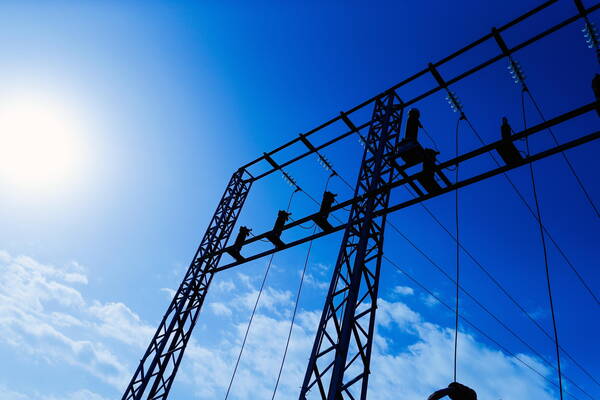What can Europe do to fight soaring power bills?
Reform of EU energy market made urgent by Russia's invasion
30 August, 17:58Over the years, renewable energy has fallen in price and gas has become more expensive -- slowly at first and then soaring after Moscow launched its war in Ukraine. As EU member states scramble to fill gas storage sites, Russia has responded to Western support for Ukraine by cutting back supplies and staging what it claims are maintenance shutdowns of a gas pipeline. Prices have soared, even in less gas-dependent countries with nuclear and renewable energy sources. Last week electricity prices for early 2023 delivery hit 950 euros ($950) per megawatt hour in Germany and 1,300 in France -- compared to 85 euros last year. Some EU powers have long been pushing for reform. Since last year, France has been urging that power prices be "decoupled" from gas, so that its consumers benefit from its large nuclear power base. Spain has invested heavily in renewable energy, but still sees prices based on the cost of gas. But as late as last year Germany and a dozen other EU capitals were still opposed to reform, believing the market supports innovation and protects stable supplies. That is now changing, and Germany will be more receptive to ideas from Brussels when EU energy ministers meet on September 9 for "urgent" crisis talks. WHAT IS BRUSSELS PLANNING? - The European Commission's plan has not been set out, but its chief Ursula von der Leyen has vowed both an immediate "emergency intervention" and a slower "structural reform of the electricity market". Some member states have launched their own stop-gap measures to control soaring prices, but at the EU level the longer term plan appears better advanced than the immediate crisis steps. "It's on the tracks. We're in such a price spike that it has opened up political space," a European diplomat told AFP, speaking on condition of anonymity to explain ongoing debate. "The European Commission will launch an impact assessment in the autumn and we can expect a proposal by the start of next year," he said. This proposition could take the form of EU legislation and if so, as Nicolas Berghmans of the IDDRI think tank warns, the lawmaking process could take up to two years. WHAT CAN BE DONE RIGHT AWAY? - A wholesale restructuring of the electricity market will take time, but European businesses and households are already getting hit with soaring bills and governments are under pressure to act. The government of the Czech Republic, which holds the EU's rotating presidency, wants to see a cap placed on wholesale gas prices, while Belgium wants to limit electricity bills. Either direction is possible, the diplomat told AFP. "Either we lower the price of gas, or we do a transitional decoupling," he said. "The choice is probably a cap on the wholesale price of electricity ... but the idea of a cap on the price of gas, which would also lower the price of electricity, has not been abandoned." Berghmans predicted that next week's meeting would give the European Commission a political steer from member states as to the direction to take.
Interests diverge depending on the country's energy mix, he explained. Capping the price of electricity "is much easier to implement in countries that make relatively little use of gas." (ANSA-AFP).














